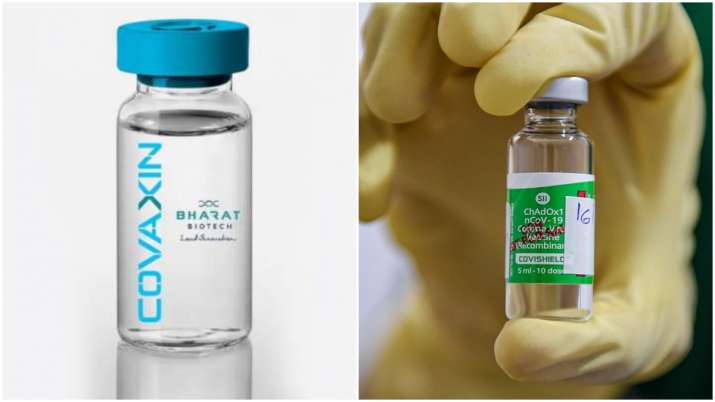
Covishield, Covaxin work against alpha, beta, gamma, delta variants of SARS-CoV-2: Govt
The government on Friday said that the vaccines Covishield and Covaxin work against SARS-CoV-2 variants alpha, beta, gamma and delta, while effectiveness trials are underway against the delta plus variants. There are four types of coronavirus disease anxiety – alpha, beta, gamma and delta – with delta plus a sub-lineage of the delta variant which is also a type of anxiety.
Addressing a press conference, ICMR Director General Balram Bhargava said that the reduction in the neutralization capabilities of the vaccine with different variants, which is based on global literature, shows that Covaxin does not change at all with alpha variants and So it is the same as it is standard tension.
“CoVShield decreases 2.5-fold with alpha. For the delta variant, Covaxin is effective but the antibody response is slightly reduced leading to a three-fold reduction, and for Covishield, it is a two-fold reduction, whereas in Pfizer and Moderna It’s a seven-fold reduction,” he said.
“However, Covishield and Covaxin work against variants of SARS-CoV-2—alpha, beta, gamma and delta—which is well established for these two vaccines,” Bhargava said.
Talking about the Delta Plus variant, Bhargava said that it is now present in 12 countries. Referring to those found in India, he said there are 51 cases in 12 states “but they are very localized”.
“The Delta Plus variant has also been isolated and cultured at ICMR-NIV, and laboratory tests are underway to check the vaccine’s effect on the Delta Plus variant. We should get these results in seven-10 days to see if the vaccine is compatible with Delta. is working against or not. Plus version,” he said.
The delta variant has about 15-17 mutations and was first reported in October last year, and was responsible for over 60 per cent of the cases in Maharashtra in February. It has spread to 80 countries, Bhargava said.
The B.1.617 strain has three subtypes – B.1.617.1, B.1.617.2 and B.1.617.3 – and the B.1.617.2 (delta variant) is classified as a variant of concern and There is an increase in transmissibility, stronger binding to the receptors of lung cells, a possible decrease in monoclonal antibody response and potential post-vaccination immune escape, he said.
The B.1.617.2 plus or delta plus variant, found in different parts of India, is under characterization (three mutations), Bhargava said.
He said that there are 16 countries where more than 25 per cent cases of the delta variant have been found.
These are Australia, Bahrain, Bangladesh, India, Indonesia, Israel, Japan, Kenya, Myanmar, Peru, Portugal, Russia, Singapore, South Korea, United Kingdom, United States of America.
Bhargava said that the second wave of COVID-19 is not over yet.
“We still have 75 districts with more than 10 per cent prevalence. We have 92 districts with five-10 per cent prevalence and 565 districts with less than five per cent prevalence, so the second wave is over in large parts of India is,” she said.
However, these districts are important and preventing the third wave is possible provided individuals and societies follow protective behaviour, Bhargava said.
“We must avoid mass gathering, use masks correctly and consistently, and we feel there is a need to immediately identify any indicator hotspots, which we have done with the Delta Plus version, and isolate people.” And vaccination has been started for these people and district level. The test positivity rate is posted on the website of the health ministry,” he said.
The ICMR chief said the data needs to be clearly monitored by the districts to ascertain whether the rate is exceeding five per cent.
“Then we need to put in place strict restrictions and this is the most important point that will guide us through the pandemic,” he said.
Bhargava said public health prevention strategies do not change with change.
“Appropriate handling of COVID-19 and immunization is to continue, but continuous monitoring of mutations is critical to track vaccine evasion, increased transmissibility, and disease severity. The next step is to tailor the vaccine structure of interest, if necessary. And the circulating variant of the variant can be changed according to the concern. There is concern that the same can be done with RNA vaccines and also modified adenovirus-based vaccine,” he said.
Read also | Third wave of coronavirus unlikely to be as severe as second wave: Study
Read also | Covishield, Covaxin effective against delta version of COVID-19: Govt
.